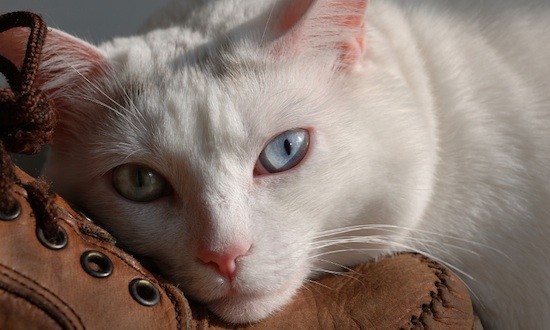The Senior Years: For Your Feline Friends Too
April 17, 2013
One undeniable truth is that we all get a bit older each day. The same is true of our pets. Sadly, their life expectancy isn’t nearly as long as ours and we lose them to the inevitable. Cats seemingly never age – they always appear athletic, always seem able to leap onto the counter – but don’t let appearances fool you. Cats do indeed get older, and as they enter their senior years they suffer various declines including:
- Arthritis: Senior cats, like humans frequently suffer from the pain and physical limitations of arthritis.
- Dental Disease: Aging cats often have dental issues, so have your cat’s teeth checked frequently.
- Cancer: This disease is found frequently in senior cats.
- Pancreatitis: Can become an issue as your cat ages.
- Renal Disease: Yet another disease commonly found in senior cats.
- Mental Changes: Senior cats become confused, forgetting where their litter pan is, sleep patterns can alter and your cat may cry out during the middle of the night. The fear resulting from the confusion can cause your cat to become more aggressive, or to withdraw. Patience is needed.
What can be done to improve the life of a senior cat?
First and foremost – patience. There will be changes as your cat ages. They cannot be avoided.
- Vet care is imperative. Have your cat checked so pain can be monitored, blood work can keep you aware of what is going on inside your cats body, and do things that will aid your cat as well as you.
- Add a couple of extra litter boxes with low sides. Older cats can have a difficult time getting into and out of a high-sided litter box. Memory can fail her, and she may not remember where the litter box is. Help her maintain her dignity as well as cleanliness of your home by providing extra boxes.
- Ramps can help a cat with arthritis pain get onto furniture.
- Avoid obesity. Extra weight is as bad for your cat as it is for you.
- Prevent dehydration. Cats easily become dehydrated, and most do not drink an adequate amount of water. As your cat ages, feed softer foods, and add a tablespoon of water to increase their intake of fluids. A cat fountain is often a favorite too, and also helps increase fluid intake.
Take the time to enjoy the senior years. Silly kitten antics are long gone, but the years you’ve spent together have formed a deep bond. Your cat trusts you and depends on you. Let those seniors years be a time that you can look back on as a time rich in togetherness and companionship. Time goes by so quickly, the years fly by and your kitten is now an aging cat, with new problems and new behaviors, but there is one constant – love.




